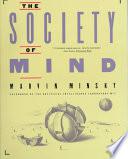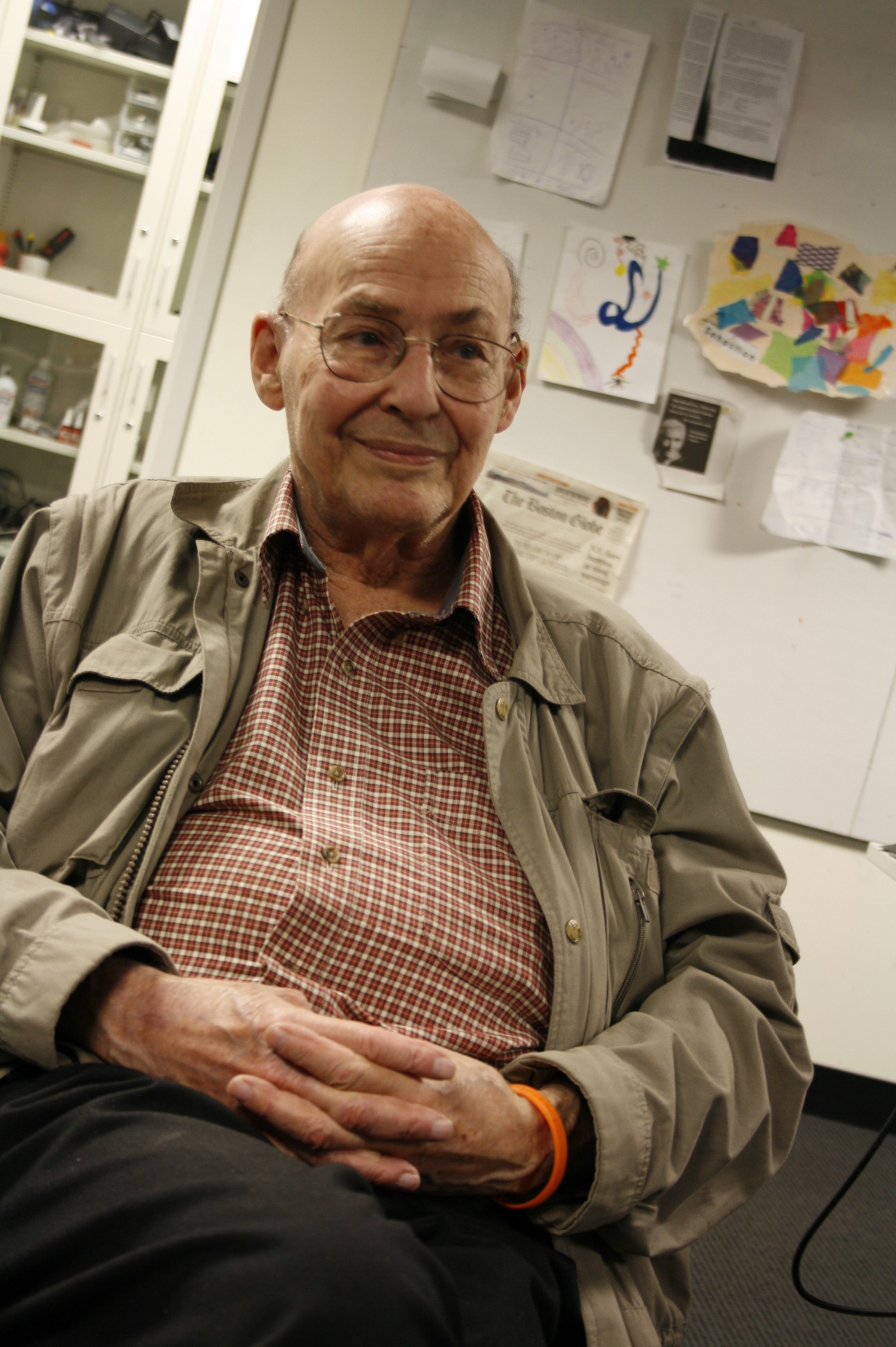Music, Mind, and Meaning (1981)
Works

Society of Mind
Marvin Minsky
The Emotion Machine
Marvin MinskyFamous Marvin Minsky Quotes
“You don't understand anything until you learn it more than one way.”
In Managing an Information Security and Privacy Awareness and Training Program (2005) by Rebecca Herold, p. 101
Jokes and their Relation to the Cognitive Unconscious (1980)
Marvin Minsky Quotes about the trip
Music, Mind, and Meaning (1981)
Context: What is the difference between merely knowing (or remembering, or memorizing) and understanding?... A thing or idea seems meaningful only when we have several different ways to represent it — different perspectives and different associations.... Then we can turn it around in our minds, so to speak: however it seems at the moment, we can see it another way and we never come to a full stop. In other words, we can 'think' about it. If there were only one way to represent this thing or idea, we would not call this representation thinking.
useful ways to combine different fragments of knowledge.
K-Linesː A Theory of Memory (1980)
K-Linesː A Theory of Memory (1980)
Marvin Minsky Quotes about thinking
Mat Buckland, AI Techniques for Game Programming (2002), Cincinnati, OH: Premier Press, 36 ISBN 1-931841-08-X.
Attributed
Music, Mind, and Meaning (1981)
K-Linesː A Theory of Memory (1980)
K-Linesː A Theory of Memory (1980)
“It's harmful, when naming leads the mind to think that names alone bring meaning close.”
Source: The Society of Mind (1987), Ch.2
Context: Questions about arts, traits, and styles of life are actually quite technical. They ask us to explain what happens among the agents of our minds. But this is a subject about which we have never learned very much... Such questions will be answered in time. But it will just prolong the wait if we keep using pseudo-explanation words like "holistic" and "gestalt." …It's harmful, when naming leads the mind to think that names alone bring meaning close.
Marvin Minsky: Trending quotes
Jokes and their Relation to the Cognitive Unconscious (1980)
Jokes and their Relation to the Cognitive Unconscious (1980)
Marvin Minsky Quotes
“Every smart person wants to be corrected, not admired.”
In "The Society of Mind" MIT course, part 6, "Layers of Mental Activities" https://www.youtube.com/watch?v=qJZ_1a-t_sA (25:40 -- 26:15). Fall 2011.
Context: If you like somebody's work -- just go and see them. However, don't ask for their autograph. A lot of people came and asked me for my autograph -- and it's creepy. What I did is read everything they published first... and correct them. That's what they really want. Every smart person wants to be corrected, not admired.
Source: The Society of Mind (1987), Ch.2
Context: The "laws of thought" depend not only on the property of brain cells, but also on how they are connected. And these connections are established not by the basic, "general" laws of physics... To be sure, "general" laws apply to everything. But, for that very reason, they can rarely explain anything in particular.... Each higher level of description must add to our knowledge about lower levels.
Jokes and their Relation to the Cognitive Unconscious (1980)
Context: All intelligent persons also possess some larger-scale frame-systems whose members seemed at first impossibly different — like water with electricity, or poetry with music. Yet many such analogies — along with the knowledge of how to apply them — are among our most powerful tools of thought. They explain our ability sometimes to see one thing — or idea — as though it were another, and thus to apply knowledge and experience gathered in one domain to solve problems in another. It is thus that we transfer knowledge via the paradigms of Science. We learn to see gases and fluids as particles, particles as waves, and waves as envelopes of growing spheres.
K-Linesː A Theory of Memory (1980)
Context: When you "get an idea," or "solve a problem," or have a "memorable experience," you create what we shall call a K-line. This K-line gets connected to those "mental agencies" that were actively involved in the memorable event. When that K-line is later "activated," it reactivates some of those mental agencies, creating a "partial mental state" resembling the original.
Source: The Society of Mind (1987), Ch.2
Context: Questions about arts, traits, and styles of life are actually quite technical. They ask us to explain what happens among the agents of our minds. But this is a subject about which we have never learned very much... Such questions will be answered in time. But it will just prolong the wait if we keep using pseudo-explanation words like "holistic" and "gestalt." …It's harmful, when naming leads the mind to think that names alone bring meaning close.
In "The Many Minds of Marvin Minsky (R.I.P.)" by John Horgan, Scientific American Blogs, 26 January 2016 http://blogs.scientificamerican.com/cross-check/the-many-minds-of-marvin-minsky-r-i-p/
“An ethicist is someone who sees something wrong with whatever you have in mind.”
TED talk (February 2003) http://blog.ted.com/2008/09/health_populati.php
Source: The Society of Mind (1987), Ch.1
“I maintain that attitudes do really precede propositions, feelings come before facts.”
K-Linesː A Theory of Memory (1980)
...What makes us such innate Copernicans?
Music, Mind, and Meaning (1981)
“When no idea seems right, the right one must seem wrong.”
Music, Mind, and Meaning (1981)
Music, Mind, and Meaning (1981)
Jokes and their Relation to the Cognitive Unconscious (1980)
Context: I am inclined to doubt that anything very resembling formal logic could be a good model for human reasoning. In particular, I doubt that any logic that prohibits self-reference can be adequate for psychology: no mind can have enough power — without the power to think about Thinking itself. Without Self-Reference it would seem immeasurably harder to achieve Self-Consciousness — which, so far as I can see, requires at least some capacity to reflect on what it does. If Russell shattered our hopes for making a completely reliable version of commonsense reasoning, still we can try to find the islands of "local consistency," in which naive reasoning remains correct.
“Will robots inherit the earth? Yes, but they will be our children.”
Scientific American (October 1994) http://web.media.mit.edu/~minsky/papers/sciam.inherit.html
Music, Mind, and Meaning (1981)
Context: If explaining minds seems harder than explaining songs, we should remember that sometimes enlarging problems makes them simpler! The theory of the roots of equations seemed hard for centuries within its little world of real numbers, but it suddenly seemed simple once Gauss exposed the larger world of so-called complex numbers. Similarly, music should make more sense once seen through listeners' minds.
Music, Mind, and Meaning (1981)
Context: How do both music and vision build things in our minds? Eye motions show us real objects; phrases show us musical objects. We "learn" a room with bodily motions; large musical sections show us musical "places." Walks and climbs move us from room to room; so do transitions between musical sections. Looking back in vision is like recapitulation in music; both give us time, at certain points, to reconfirm or change our conceptions of the whole.
K-Linesː A Theory of Memory (1980)
Context: A memory should induce a state through which we see current reality as an instance of the remembered event — or equivalently, see the past as an instance of the present.... the system can perform a computation analogous to one from the memorable past, but sensitive to present goals and circumstances.
“Just knowing that such states exist, that is, having symbols for them, is half the battle.”
Music, Mind, and Meaning (1981)
Context: Innate sentic detectors could help by teaching children about their own affective states. For if distinct signals arouse specific states, the child can associate those signals with those states. Just knowing that such states exist, that is, having symbols for them, is half the battle.
“Only the professional remembers the music itself, timbres, tones and textures.”
K-Linesː A Theory of Memory (1980)
Context: Concrete concepts are not necessarily the simplest ones. A novice best remembers "being at" a concert. The amateur remembers more of what it "sounded like." Only the professional remembers the music itself, timbres, tones and textures.
Jokes and their Relation to the Cognitive Unconscious (1980)
Context: All intelligent persons also possess some larger-scale frame-systems whose members seemed at first impossibly different — like water with electricity, or poetry with music. Yet many such analogies — along with the knowledge of how to apply them — are among our most powerful tools of thought. They explain our ability sometimes to see one thing — or idea — as though it were another, and thus to apply knowledge and experience gathered in one domain to solve problems in another. It is thus that we transfer knowledge via the paradigms of Science. We learn to see gases and fluids as particles, particles as waves, and waves as envelopes of growing spheres.
the latter often in situations where the art of heuristic programming has far outreached the special-case "theories" so grimly taught and tested — and invocations about programming style almost sure to be outmoded before the student graduates.
Turing Award Lecture "Form and Content in Computer Science" (1969) http://web.media.mit.edu/~minsky/papers/TuringLecture/TuringLecture.html, in Journal of the Association for Computing Machinery 17 (2) (April 1970)
"Communication with Alien Intelligence" http://web.media.mit.edu/~minsky/papers/AlienIntelligence.html, in Extraterrestrials: Science and Alien Intelligence (1985) edited by Edward Regis <!-- Cambridge University Press --> also published in Byte Magazine (April 1985)
Context: Speed is what distinguishes intelligence. No bird discovers how to fly: evolution used a trillion bird-years to 'discover' that – where merely hundreds of person-years sufficed.
Music, Mind, and Meaning (1981)
Context: Of what use is musical knowledge? Here is one idea. Each child spends endless days in curious ways; we call this play. A child stacks and packs all kinds of blocks and boxes, lines them up, and knocks them down. … Clearly, the child is learning about space!... how on earth does one learn about time? Can one time fit inside another? Can two of them go side by side? In music, we find out!
“Concrete concepts are not necessarily the simplest ones.”
K-Linesː A Theory of Memory (1980)
Context: Concrete concepts are not necessarily the simplest ones. A novice best remembers "being at" a concert. The amateur remembers more of what it "sounded like." Only the professional remembers the music itself, timbres, tones and textures.
Source: The Society of Mind (1987), p. 187
Context: For generations, scientists and philosophers have tried to explain ordinary reasoning in terms of logical principles — with virtually no success. I suspect this enterprise failed because it was looking in the wrong direction: common sense works so well not because it is an approximation of logic; logic is only a small part of our great accumulation of different, useful ways to chain things together.
The Emotion Machine (2006)
“Old answers never perfectly suit new questions, except in the most formal, logical circumstances.”
K-Linesː A Theory of Memory (1980)
Turing Award Lecture "Form and Content in Computer Science" (1969), in Journal of the Association for Computing Machinery 17 (2) (April 1970)
K-Linesː A Theory of Memory (1980)
“We'll show you that you can build a mind from many little parts, each mindless by itself.”
Prologue
The Society of Mind (1987)
Music, Mind, and Meaning (1981)
The Society of Mind (1987)
Marvin Minsky in: David G. Stork (1998). HAL's Legacy: 2001's Computer As Dream and Reality. p. 16
The Emotion Machine (2006)
Source: The Society of Mind (1987), Ch.1
K-Linesː A Theory of Memory (1980)
Jokes and their Relation to the Cognitive Unconscious (1980)
